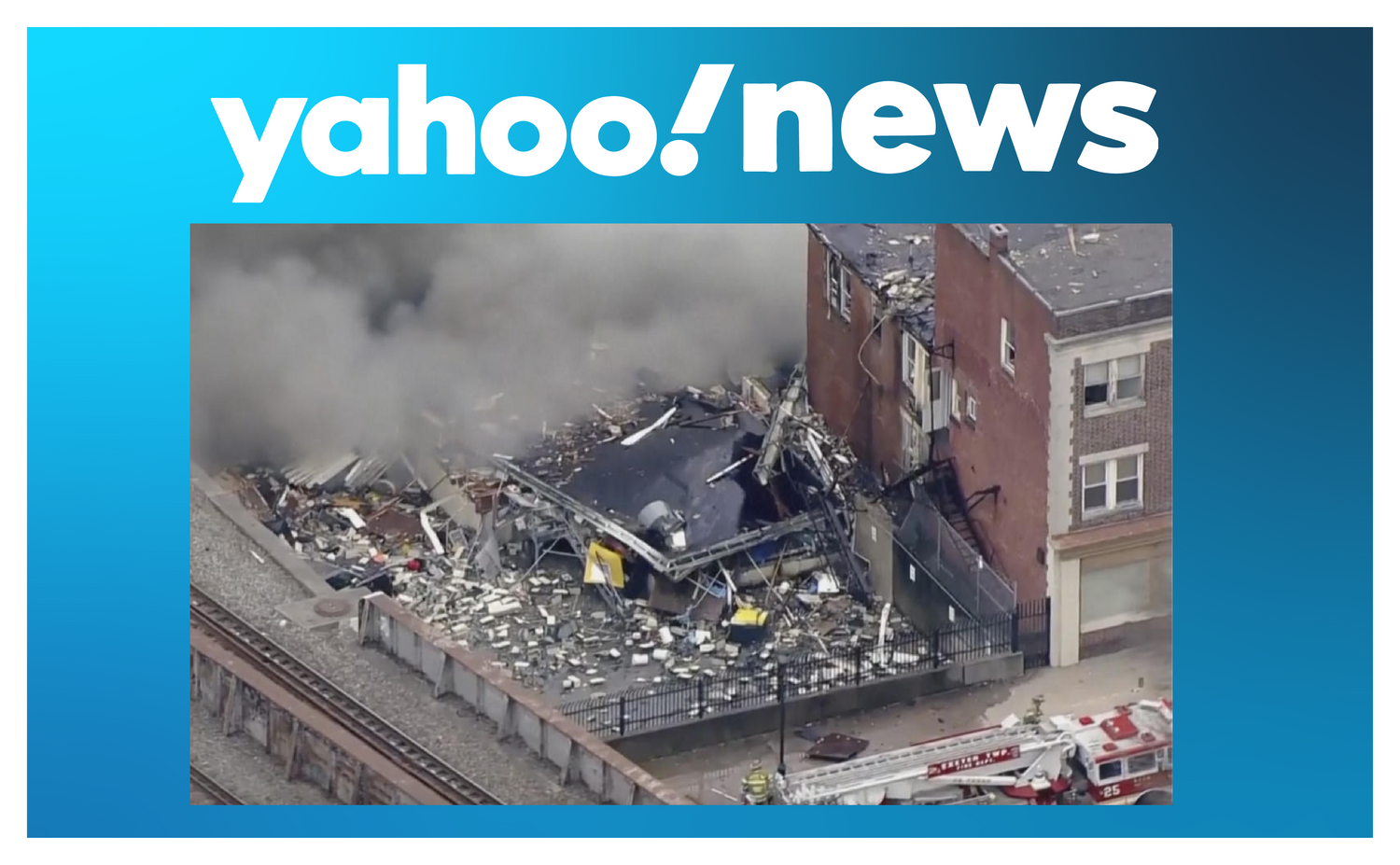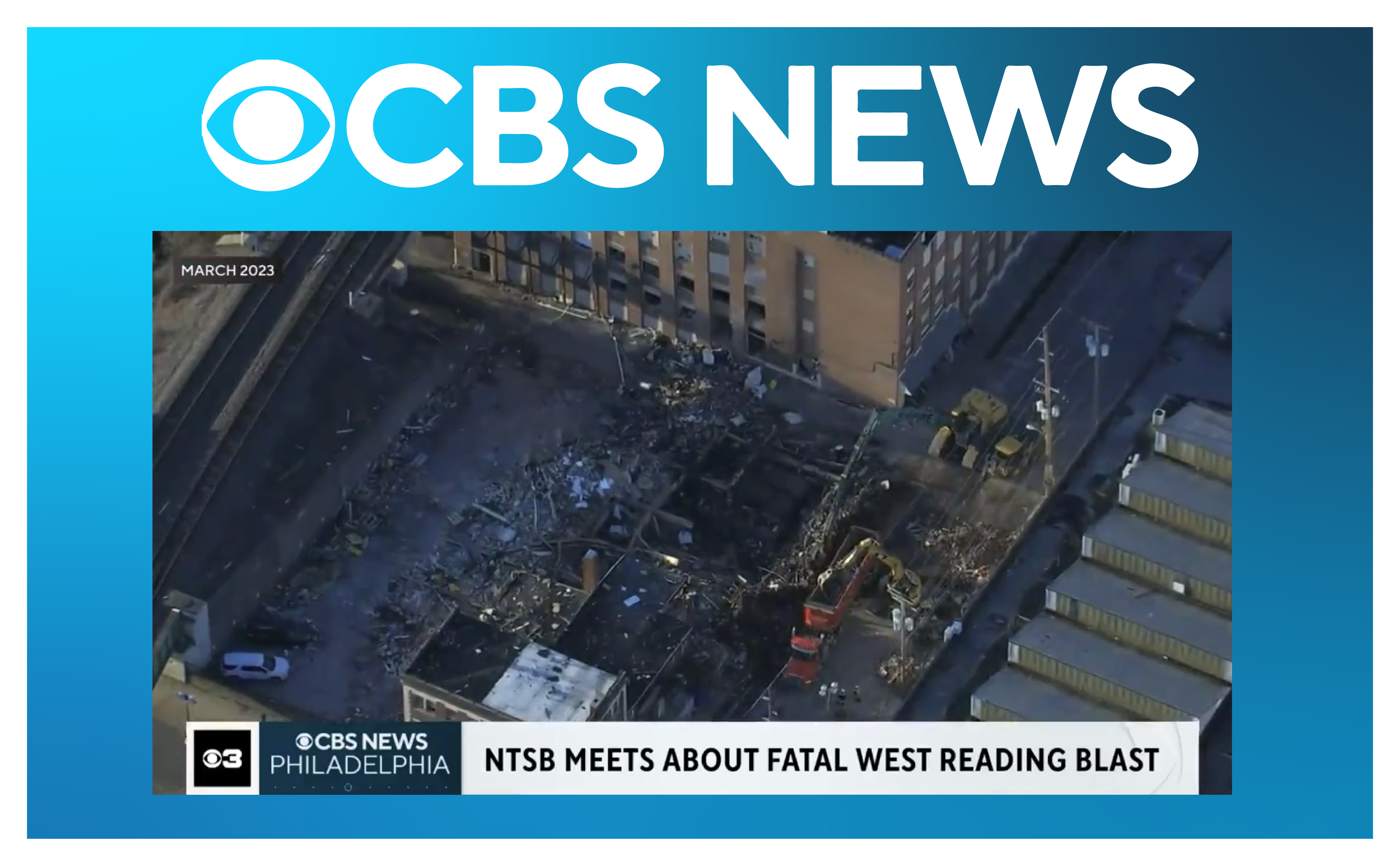For nearly seven hours on Tuesday, members of the National Transportation Safety Board delved deeply into the details surrounding the March 2023 explosion at a West Reading chocolate plant that claimed the lives of seven workers.
The board held a public hearing aimed at determining the probable cause of the fatal blast and reviewed recommendations aimed at making sure a similar incident doesn’t happen again.
The hearing was held in Washington, D.C, and streamed live on the NTSB website.
On March 24, 2023, an R.M. Palmer Co. chocolate plant in the first block of South Second Avenue exploded just before 5 p.m. The NTSB has been investigating the incident since shortly after the explosion occurred.
On Tuesday the board accepted the determination that the blast was caused by a cracked and leaking natural gas fitting.
The agency had provided occasional updates on its investigation, most recently by issuing a preliminary report in July 2023 that gave a preview of that ruling. That report said a leak in a fitting known as a service tee installed on an out-of-use natural gas service line appeared to be the source of the fatal explosion.
That assertion was reiterated during Tuesday’s hearing, with members of the investigative team going into great detail about the service tee and what led to its failure.
The tee, which is a fitting used to make lateral connections, was installed in 1982 and retired by UGI Utilities in 2021 when the building’s natural gas meter was relocated from the basement to a spot on the building’s exterior. However, the fitting remained connected to the natural gas system, which investigators said is common practice.
The service tee in question had a long history of failure, particularly when impacted by heat, investigators said. And that appears to be the case in the Palmer explosion.
Investigators said the service tee was near a steam pipe that had for decades been corroding, weakening its structure. And at some point during or after a UGI crew performed the meter relocation it cracked due to weight pressed on it.
The investigators were careful not to place blame on what provided that pressure, saying only that evidence showed it began leaking steam after the work by UGI was done.
That steam heated the ground, investigators said, which helped contribute to cracks forming in the service tee. In all, three leaks were discovered. That allowed natural gas to seep into the basement. The gas was then ignited by an unknown source.
The investigators said their research showed Palmer officials had never performed any maintenance or inspections of the steam pipe and were not aware of the risk it posed.
Also contributing to the severity of the incident, investigators said, was Palmer’s lack of an evacuation plan or training of employees regarding natural gas leaks.
Investigators said several employees reported an odor prior to the explosion, but management did not order an evacuation. Palmer officials said the employees could have self-evacuated, but employees reported that they were concerned doing so would jeopardize their jobs.
Palmer officials told investigators that they did not rush to evacuate because when UGI had come to investigate potential leaks in the past the utility had not ordered evacuations.
Jennifer Homendy, NTSB chair, took issue with Palmer’s approach. She said she has natural gas service at her home and that if she smelled the distinctive rotten egg odor added to natural gas to make it detectable — as Palmer employees reported to their supervisors prior to the explosion — there’s only one proper course of action.
“You immediately evacuate, and it is my responsibility to get my family out,” she said.
Homendy said the decision to evacuate should not be pushed onto employees or the utility but on Palmer officials, expressing that she feels the company is trying to shirk its responsibility.
“You need to own that this happened and you need to take responsibility,” she said.
Investigators said that since the explosion Palmer has implemented procedures and training regarding natural gas, however Homendy said the new procedures are too vague and should be amended.
Palmer officials could not be reached for comment Tuesday afternoon.
Both investigators and board members stressed that the use of natural gas detectors would help prevent tragic accidents, with their alarms alerting people of the need to evacuate. Natural gas detectors are not required by federal regulations in commercial or residential buildings.
In all, the investigation produced 19 findings that were accepted by the board Tuesday along with the determination of probable cause.
The investigative report itself was not accepted by the board, instead being returned to the investigative team for revisions. The board did not specify when it expected to adopt the final report.
West Reading officials issued a statement after the hearing’s conclusion: “The borough of West Reading acknowledges the draft findings of the National Transportation Safety Board regarding the tragic natural gas explosion at the R.M. Palmer facility. This incident deeply impacted our community, and we remain committed to supporting those affected as we continue to heal together.
“Our thoughts remain with the victims, their families, and everyone impacted by this event. We stand united as a community, honoring their memory with resilience and compassion.”
Source: Yahoo!News





コメントを書く
このサイトはhCaptchaによって保護されており、hCaptchaプライバシーポリシーおよび利用規約が適用されます。